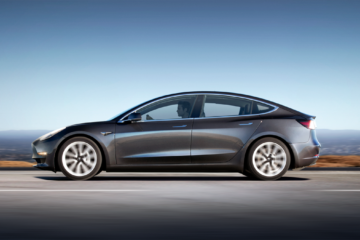A new interpretation of the definition of free trade agreement is praised by the European Union and criticized by a prominent U.S. politician.
The Inflation Reduction Act of 2022 was signed into law by President Joe Biden on Aug. 16, 2022. The previous year it had already passed the House of Representatives.
After getting through the House, the bill would need to pass the Senate to get to Biden’s desk for the signature that would make it a law. But negotiations in the Senate faced some political challenges, most conspicuously finding a way the Democrats could agree unanimously on the specifics.
The Senate was divided 50-50 among Democrats and Republicans. No Republicans were going to vote for the bill. So the only way it would pass was for all 50 Democrats to vote for it and then for Vice President Kamala Harris to cast the tie-breaking vote as required by the U.S. Constitution.
First introduced as a $3.5 trillion bill, the Build Back Better Act, after spirited legislative maneuvering, was ultimately renamed the Inflation Reduction Act of 2022. Its price tag was reduced to $737 billion, not nearly as costly but still an enormous spending bill. On Aug. 7, it passed the Senate 51 to 50, with Vice President Harris casting the tiebreaking vote.
Provisions of the law include Affordable Care Act subsidies, lowering prescription drug prices, investing in domestic energy, tax reform and promoting clean energy.
One aspect of the clean energy requirements has received an elevated level of scrutiny and is already having an effect on individuals and auto manufacturers. A purchaser of an electric vehicle (EV) is eligible to claim a tax credit of up to $7,500, but with this law it only applies if the vehicle’s final assembly occurs in North America.
Foreign automakers such as Hyundai were surprised by the immediate application of the condition and are rushing to find ways to comply.
Specifics on other ways for consumers to save when buying zero emission cars, though, are still being negotiated. For example, the Treasury Department has said that more guidance on electric vehicle tax credits regarding battery requirements will be coming in March 2023.
A new Free Trade Agreement Interpretation is Announced
The Treasury Department said in a white paper Dec. 29 that it was using a broad definition of which countries have a free trade agreement with the U.S. The effect would be that cars produced by international automobile manufacturers could qualify for some tax credits.
Also announced was guidance for a separate tax credit for commercial clean vehicles that would give non-U.S. car companies a chance at eligibility.
The European Union officially praised the policy decision.
“New guidance issued today by the U.S. reaffirms that E.U. companies can benefit from the Commercial Clean Vehicle Credit scheme under the U.S. Inflation Reduction Act,” the European Commission said in a statement. “The E.U. welcomes this guidance, which reflects the constructive engagement as part of the EU-US Inflation Reduction Act Task Force at senior official level.”
The statement did, however, include an opinion on policy around the main tax credits.
“The EU continues to seek similar, non-discriminatory treatment of EU clean vehicle producers under the Clean Vehicle Credits of the Inflation Reduction Act,” it clarified. “This scheme remains of concern to the EU, as it contains discriminatory provisions which de facto exclude EU companies from benefiting. Discriminating against EU produced clean vehicles and inputs violates international trade law and unfairly disadvantages EU companies on the US market, reduces the choices available to US consumers and ultimately reduces the climate effectiveness of this green subsidy.”
One Senator Voices His Disapproval
Sen. Joe Manchin, D-W.Va., a vocal advocate of the North America final assembly provision and supporter of U.S.-based manufacturing of EVs, was not pleased with the new free trade agreement leniency.
The Treasury Department’s explanation “bends to the desires of the companies looking for loopholes and is clearly inconsistent with the intent of the law,” he said, according to Politico.
On Twitter, Stock Talk Weekly (@stocktalkweekly) quotes Manchin being very blunt about the action he would like to see.
“U.S. Senator Joe Manchin says ‘I urge the U.S. Treasury to halt the implementation of electric vehicle tax credits,'” it said in a tweet.


